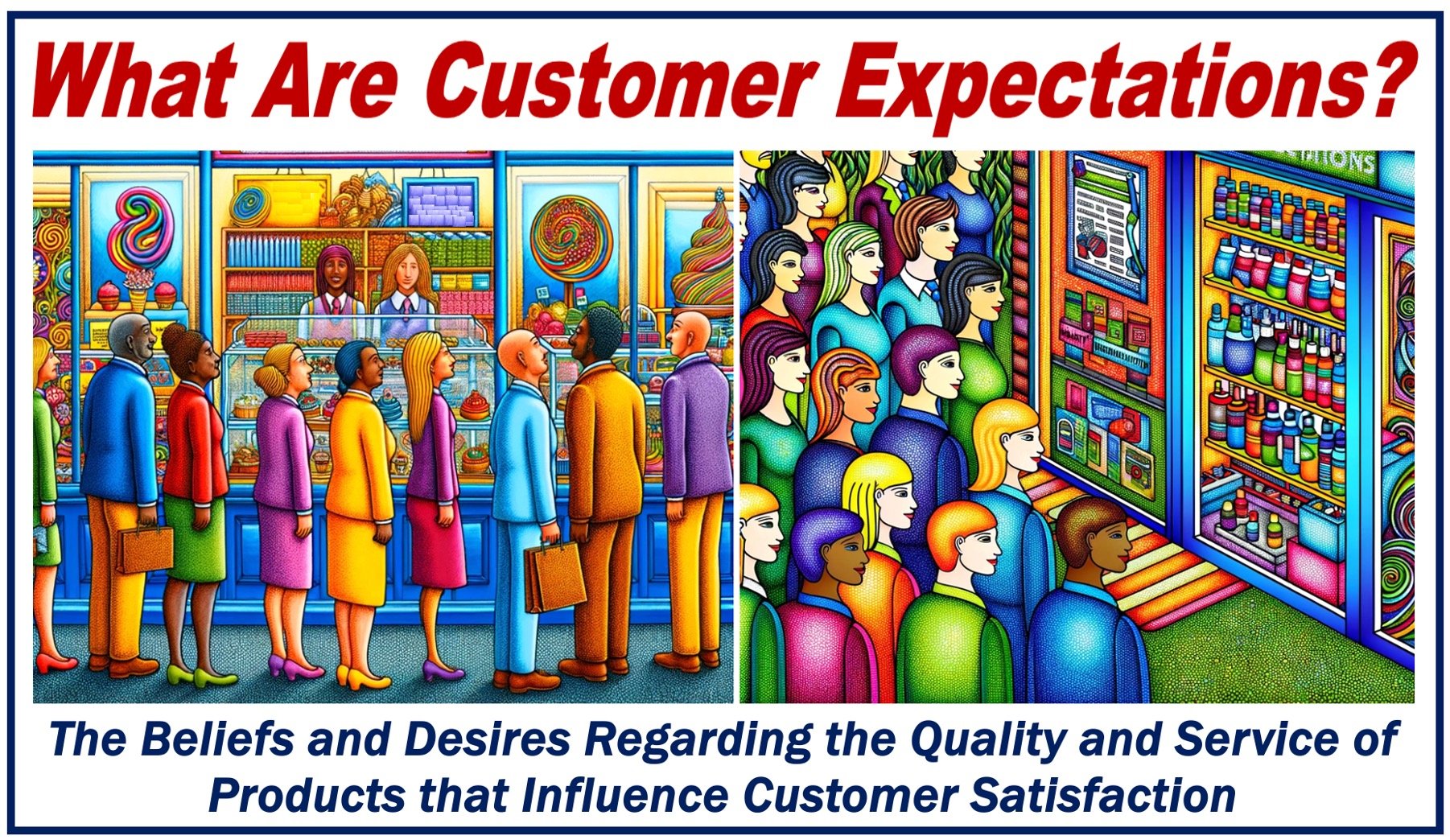Customer Expectations are the standards or benchmarks that we, as consumers, set when we purchase goods or services. Any set of actions or behaviors that we anticipate during interactions with a company constitute customer expectations.
The term ‘customer expectations’ refers to both what we expect of a product and how the seller interacts with us. For example, when I buy a top-quality modern smartphone, I expect it to have facial recognition as standard. I also expect the seller to be polite, helpful, and interested in what I am seeking.
In today’s fiercely competitive marketplace, understanding what consumers expect is crucial for any business that wants to succeed.
Our expectations influence our satisfaction and loyalty toward a product, brand, or company.
Two definitions
Zendesk.com says the following about the term “customer expectations”:
“Customer expectations describe how customers envision each interaction with your company. From self-service options to customer service wait times, these expectations span every touchpoint throughout the customer journey. Customers expect the very best from your business. Failing to meet their expectations can cause them to seek out a competitor who will.”
In the definition below, Qualtrics.com also includes what we expect from the product, and not just the interactions with the seller:
“Generally, customer expectations are a set of ideas about a product, service, or brand that a customer holds in their mind.”

Factors that influence customer expectations
Essentially, our expectations are influenced by our personal needs, past experience, information from other customers, and what the seller tells us.
Since the advent of the Internet, information has become readily available to virtually everybody. We are much more informed today than consumers were before online shopping or e-commerce existed.
We now anticipate quality products, excellent customer service, and money well spent (value for money).
-
Quality is non-negotiable
Customers expect top quality. We expect the product or service that we purchase to perform as advertised. This means that a gadget, for example, should work flawlessly out of the box. A service, such as a home cleaning agency, should be thorough, professional, and trustworthy.
If visitors do not experience easy navigation on your website, they are unlikely to remain there long enough to buy anything. If your competitors offer a seamless and easy-to-navigate shopping experience, and you don’t, you will struggle to survive.
-
Customer service
Customer service is another pivotal expectation. We want and expect prompt, polite, effective, and professional responses to our inquiries and concerns.
Whether it is through a quick response on social media, a telephone conversation with a knowledgeable person, a helpful chat service, an informative email follow-up, personalized assistance in-store, or a user-friendly self-service portal, the quality of customer service can significantly influence our satisfaction and decision to return.
Artificial intelligence and machine learning have advanced rapidly over the past few years. Today, state-of-the-art chatbots do a fantastic job in solving customer problems, responding to inquiries, and explaining details about products and services. A chatbot is a software application designed to simulate conversation with human users
-
Value for money
Consumers today are more willing to pay for quality, but they also want to feel like their purchase was worth the price.
The cheapest option may not necessarily be the best one, and consumers know this. For the modern shopper, perceived value matters. This includes product quality, customer service, and the overall purchasing experience.
-
Transparency and honesty
We expect transparency and honesty in all dealings. We appreciate it when sellers are upfront about their offerings and policies. This builds trust and customer loyalty, two key components for a successful business-customer relationship.
-
Personalization
Since the turn of the century, personalization has become an increasingly important customer expectation. We like to feel recognized and valued.
Personalized experiences, such as product recommendations based on previous purchases or personalized emails, can help enhance customer satisfaction and loyalty.
Conclusion
Any business looking to thrive must meet or exceed customer expectations.
It is about delivering top-quality products, providing exceptional customer service, and ensuring that the overall value justifies the price. Being transparent, honest, and providing personalized experiences can lead to customer satisfaction and loyalty, which is great for business.
